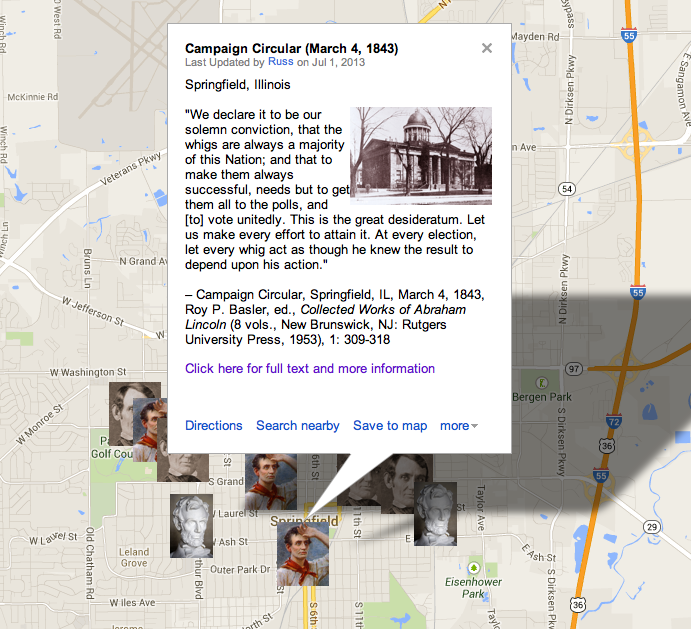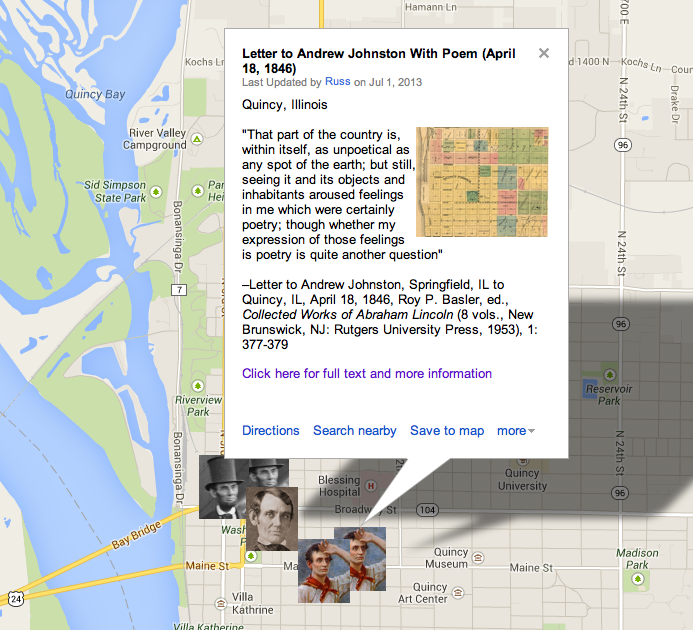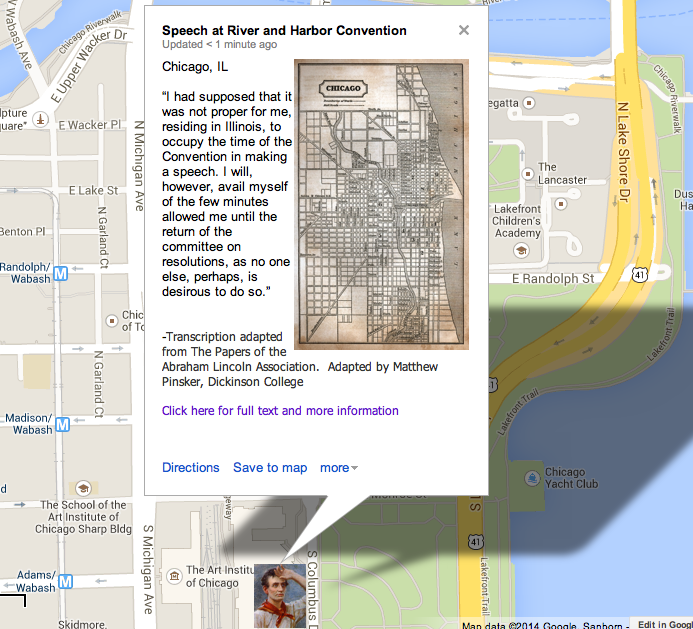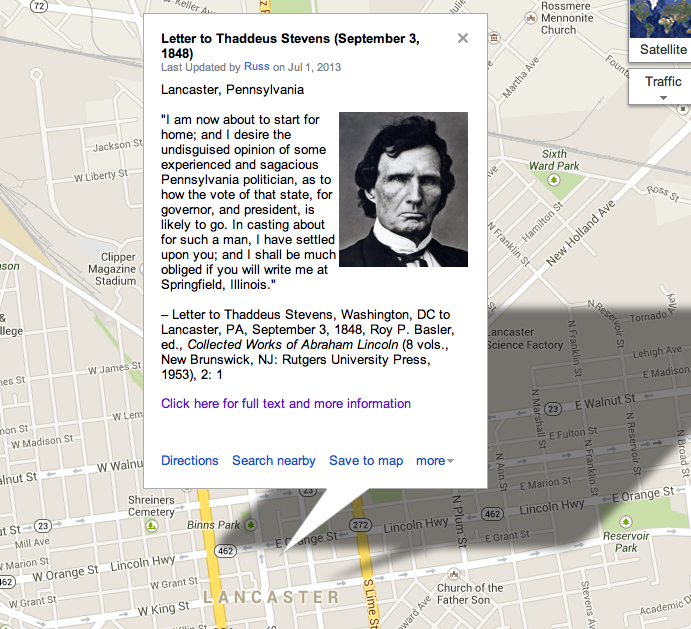Contributing editors for this page include Adam Sonstroem
Ranking
#133 on the list of 150 Most Teachable Lincoln Documents
Annotated Transcript
On This Date
HD Daily Report, March 4, 1843
The Lincoln Log, March 4, 1843
Close Reading Videos
Lincoln Close Reading Campaign Circular from Adam Sonstroem on Vimeo.
Custom Map
How Historians Interpret
“An 1843 campaign circular rallying Illinois Whigs to party unity shows Lincoln’s concern to educate the public in a manner consistent with both reason and revelation: ‘That ‘union is strength’ is a truth that has been known, illustrated and declared, in various ways and forms in all ages of the world. That great fabulist and philosopher, Aesop, illustrated it by his fable of the bundle of sticks; and he [that is, Jesus] whose wisdom surpasses that of all philosophers, has declared that ‘a house divided against itself cannot stand.” By quoting Aesop alongside the Bible, Lincoln shows how an ‘important, and universally acknowledged truth,’ whether its source be mortal or divine, is difficult to resist in the political realm. He therefore models the kind of moderation or temperance in speech he hopes to inspire within the temperance movement in precisely those parts of the address in which he shares his true opinion.”
—Lucas E. Morel, “Lincoln Among the Reformers: Tempering the Temperance Movement,” Journal of the Abraham Lincoln Association 20 (1999)
“Lincoln seems to have been, in decisive respects, a child of the Enlightenment, dedicated to the hope, if not the expectation, of continuous and unlimited progress. In this way, too—independent of the effects upon him of a soul searing war—he seems to have been open to Modern influences that are distantly grounded in Christian doctrines.”
—George Anastaplo, Abraham Lincoln: A Constitutional Biography (New York: Rowman & Littlefield, 2001) 348.
“Lincoln’s intense hostility toward Whig deserters was reflected in the circular’s denunciation of John Reynolds, William L. D. Ewing, and Richard M. Young, all of whom had been helped by the Whigs and who then became “perseveringly vindictive in their assaults upon all our men and measures.” Whigs must adopt the convention system, Lincoln argued, for “while our opponents use it, it is madness in us not to defend ourselves with it.” Without nominating conventions, there could be none of the party unity so essential for victory. “If two friends aspire to the same office it is certain that both cannot succeed. Would it not, then, be much less painful to have the question decided by mutual friends some time before, than to snarl and quarrel until the day of the election and then both be beaten by the common enemy?” To illustrate the point, Lincoln employed a Scriptural aphorism that he would famously reuse in 1858: “he whose wisdom surpasses that of all philosophers has declared that ‘a house divided against itself cannot stand.’”
NOTE TO READERS
This page is under construction and will be developed further by students in the new “Understanding Lincoln” online course sponsored by the House Divided Project at Dickinson College and the Gilder Lehrman Institute of American History. To find out more about the course and to see some of our videotaped class sessions, including virtual field trips to Ford’s Theatre and Gettysburg, please visit our Livestream page at http://new.livestream.com/gilderlehrman/lincoln




